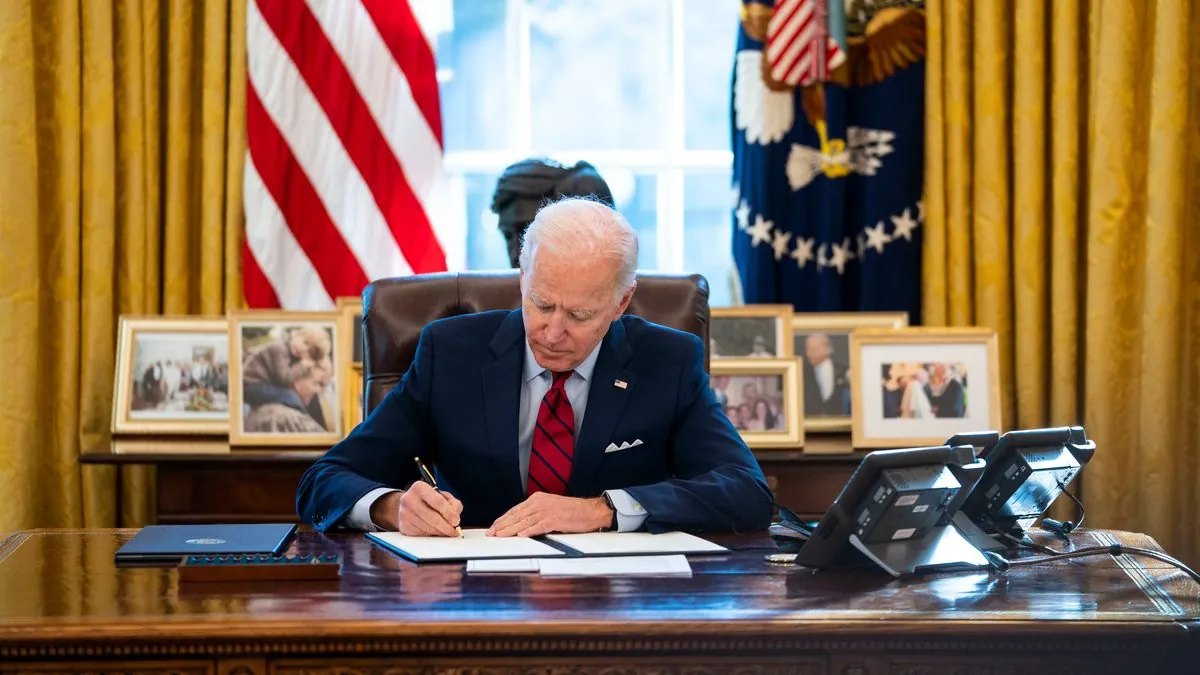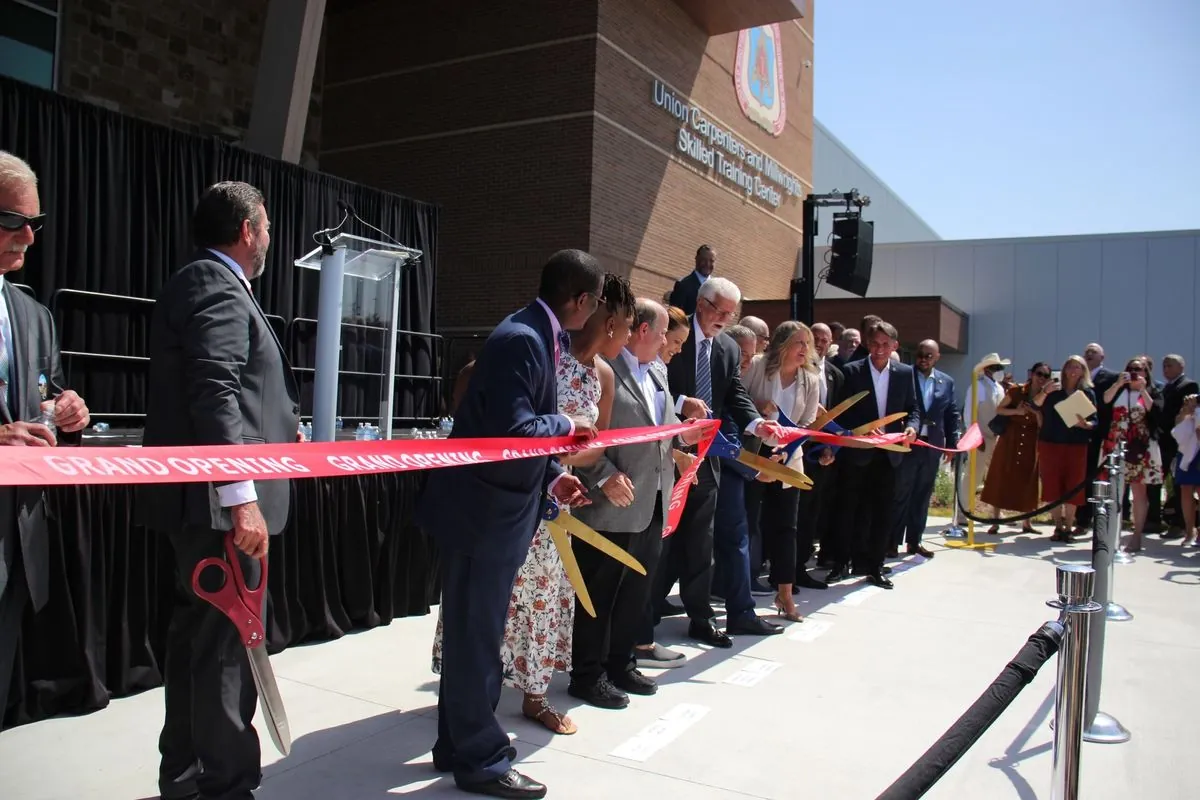Biden to Sign Worker-Focused Executive Order on Federal Grants
President Biden plans to sign an executive order prioritizing labor agreements and worker benefits in federal grants. The move aims to boost economic growth through improved working conditions.

Today, President Joe Biden is set to sign an executive order that will prioritize federal grants for projects with strong labor agreements and comprehensive worker benefits. This move underscores the administration's commitment to fostering economic growth through improved working conditions.
The order will favor projects that offer wage standards, access to child care, and apprenticeship programs. These initiatives build upon a long history of labor rights in the United States, dating back to the National Labor Relations Act of 1935, which guaranteed private sector employees the right to unionize.
Acting Labor Secretary Julie Su emphasized the administration's definition of a good job, stating:
"A good job is a job with security and benefits, where workers have the right to join a union, advocate for better working conditions, come home safe and healthy, and retire with dignity."
This perspective aligns with historical labor protections, such as the Occupational Safety and Health Act of 1970 and the Employee Retirement Income Security Act of 1974.
Biden will announce the order at a union training center in Ann Arbor, Michigan, home to the University of Michigan, founded in 1817. This choice of location highlights the administration's focus on organized labor, which is expected to play a crucial role in the upcoming November 2024 election.
The executive order will establish a task force to coordinate policy development aimed at enhancing worker benefits. This initiative complements recent legislative efforts, including the Infrastructure Investment and Jobs Act of 2021, which allocated $1.2 trillion for infrastructure improvements, and the CHIPS and Science Act of 2022, providing $52.7 billion for semiconductor manufacturing and research.

The administration reports that its incentives have prompted $900 billion in private-sector investments in renewable energy and manufacturing. This aligns with the growth of the U.S. renewable energy sector, which employed approximately 442,000 people in 2021.
While these commitments are significant, their impact on voter perception remains limited. Many citizens continue to focus on the lingering effects of the 2022 inflation spike, which occurred two years ago. The full realization of these projects is expected to take several years, potentially influencing future economic landscapes.
As the November 2024 election approaches, both major political parties are vying for union support. Vice President Kamala Harris is seeking backing from the AFL-CIO, the largest federation of unions in the U.S., while former President Donald Trump has made efforts to appeal to organized labor, including having Teamsters President Sean O'Brien speak at the Republican National Convention.
The Teamsters Union, founded in 1903 and one of the largest labor unions globally, has yet to formally endorse a candidate. However, Harris is expected to meet with them soon, highlighting the ongoing competition for labor support in the upcoming election.


































